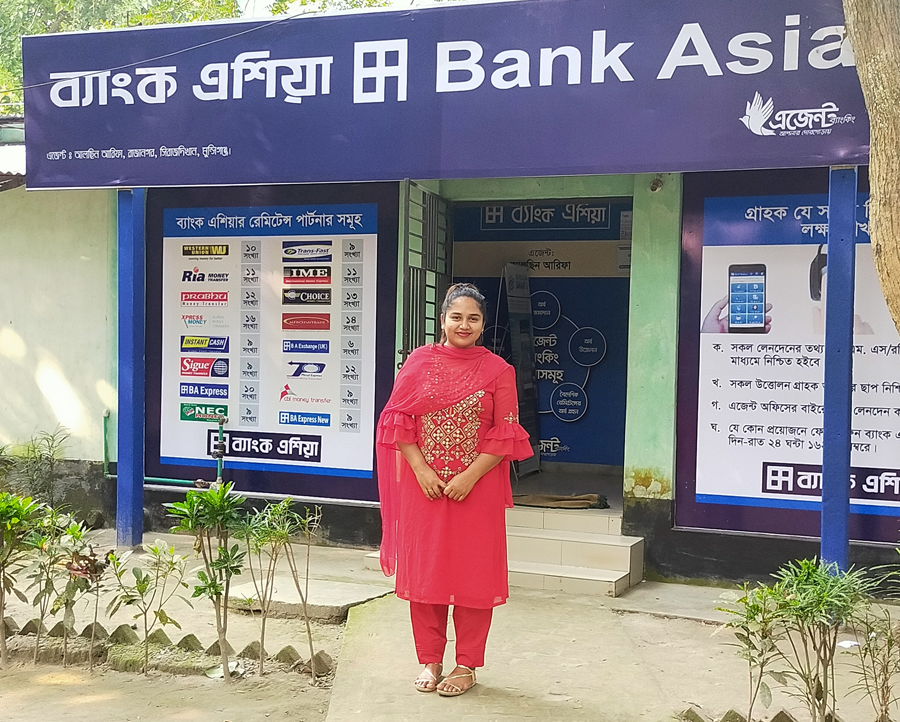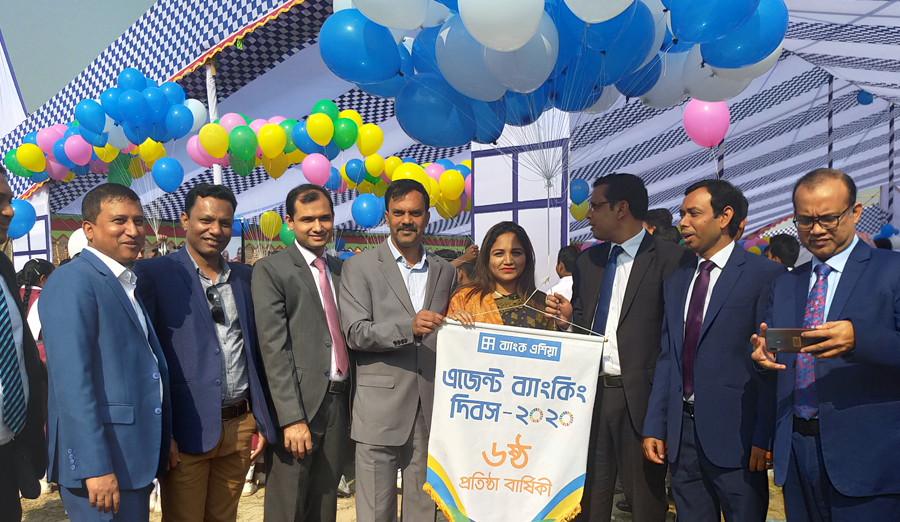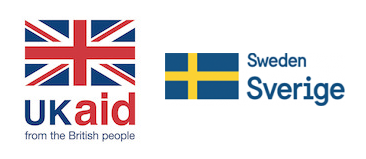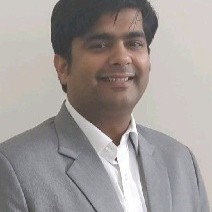Alsin is a young mother and wife, and the top performing agent among Bank Asia’s over 4,800 active agents (of which only about 10% are female). In recent months, her average monthly commission has grown to over 40 times the average commission of all other active agents. In Bangladesh, the vast majority of digital financial service (DFS) agents are men. However, research there has found that female agents can be preferred by women because they are perceived as providing better service and being more trustworthy. A 2015 study found that of 4,000 female mobile financial services users and non-users surveyed, only 25% preferred male agents.
In this blog we look at the factors that have made Alsin successful as a female agent, and reflect on the lessons for providers to better support female agents to grow their customer base and revenue streams.

Alsin’s story
Alsin has been an agent with Bank Asia for seven years. She started her business by going door-to-door to recruit potential customers. Today, she has three outlets and employs four people. A key driver behind Alsin’s unusually high monthly commissions is the government’s recent purchase of land adjacent to her outlets. When Alsin first heard about the government’s plans, she worked with local staff from Bank Asia to convince her existing customers who had sold their land to deposit their proceeds of the sale into a savings account. She also identified potential customers that could be compensated for their land and approached them to explain the benefits of saving through a bank account. Her perseverance allowed Alsin to earn a commission on the total savings balances of new and existing customers.
This event provided Alsin an opportunity to grow her business; yet, her success was also due to the trust she had built among her customers, and her ability to convince them to deposit their newly acquired sizeable funds into a savings account.
The factors behind Alsin’s success: knowledge and trust
There are two key factors behind Alsin’s success, from which lessons can be drawn to better support female agents. The first is her extended knowledge of Bank Asia’s products and services, which helped her to explain the value of an account to her customers. She started her business by going door-to-door and helping customers to open an account, even when they had little funds or no money at all. Gradually, she encouraged them to start using these accounts to pay for utility bills, such as electricity, and to use other financial services like savings. So, when the opportunity arose, she was more likely to succeed in helping customers invest their new funds into a fixed-term savings account.
The second factor was her ability to build trust over many years by using her social networks and providing outstanding customer service. Alsin believes that an important reason why people didn’t save money in their accounts was a general lack of trust in banks. She also thinks her customers prefer to engage with her because they know her and her family. She prides herself in offering great customer service by getting to know her customers personally and offering extra support to those who might need it. For example, on occasion, she collects cheques from customers and ensures that the funds are deposited into their accounts.
In addition, Alsin’s ability to leverage her social networks was also central in helping her gain access to female customers. When she started her business, targeting women without an account was a key part of her strategy. On many occasions, she also received support from Bank Asia in the form of male staff, who accompanied her and engaged with male members of households, while she built a relationship with the females. This support has been crucial in overcoming some of the social norms in the community, which could have prevented her from onboarding male customers.

Lessons learned
Alsin’s story highlights the importance of building costumers’ trust and allows us to reflect on the best ways to support agents to build credibility and a reputation of trustworthiness.
The GSMA Connected Women programme recommends that mobile operators and other providers consider using female agents and existing female customers to influence and onboard other women. This is especially important in settings where the roles of men and women are very different; where women feel more comfortable talking to other women or are more likely to trust other women than men. When onboarding female agents, it is important to ensure they are familiar with products and services, as well as supporting them after their initial training; for example, by considering their unique circumstances, such as their level of access to households in the community and their ability to influence women and men. In many low- and middle-income countries, social norms remain entrenched, which is why agent support teams are key. In addition, consideration needs to be given to how best to incentivise and support agents to drive female adoption, usage, and engagement after registration. Family disapproval is also one of the top barriers for women to use mobile internet in a number of settings, highlighting the importance of involving gatekeepers in an effort to increase women’s digital and financial inclusion.
The success of Alsin as a female banking agent in a country with significant conservative social norms demonstrates the potential of female agents to thrive in such settings, while also showing that hard work can pay off in unexpected ways. When asked what advice she would give to other young people who want to become agents, Alsin shared three recommendations:
- Don’t be afraid to take risks;
- Earn the goodwill of the community to build trust; and
- Be patient as profits won’t come overnight.
Investing in agents, including female agents, presents commercial and socio-economic benefits for providers, women customers, and female agents. All of this contributes to closing the digital gender divide.

This initiative is funded by UK aid from the UK government and by aid from the Swedish International Development Cooperation Agency (SIDA), and is supported by the GSMA and its members. The views expressed do not necessarily reflect the UK or Swedish governments’ official policies.



